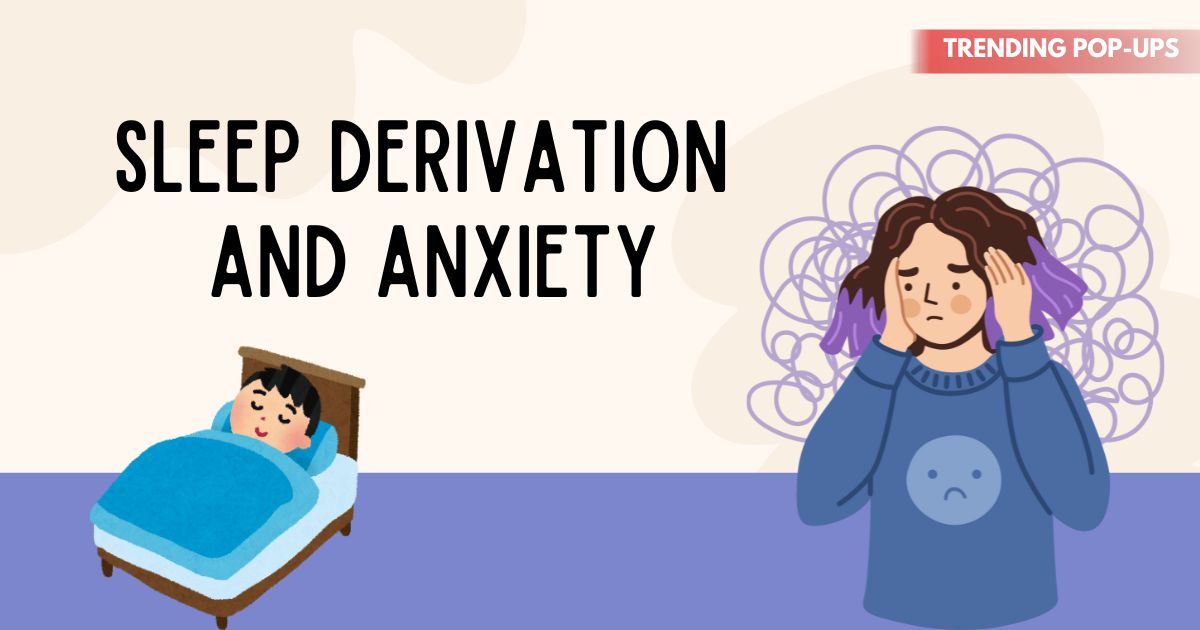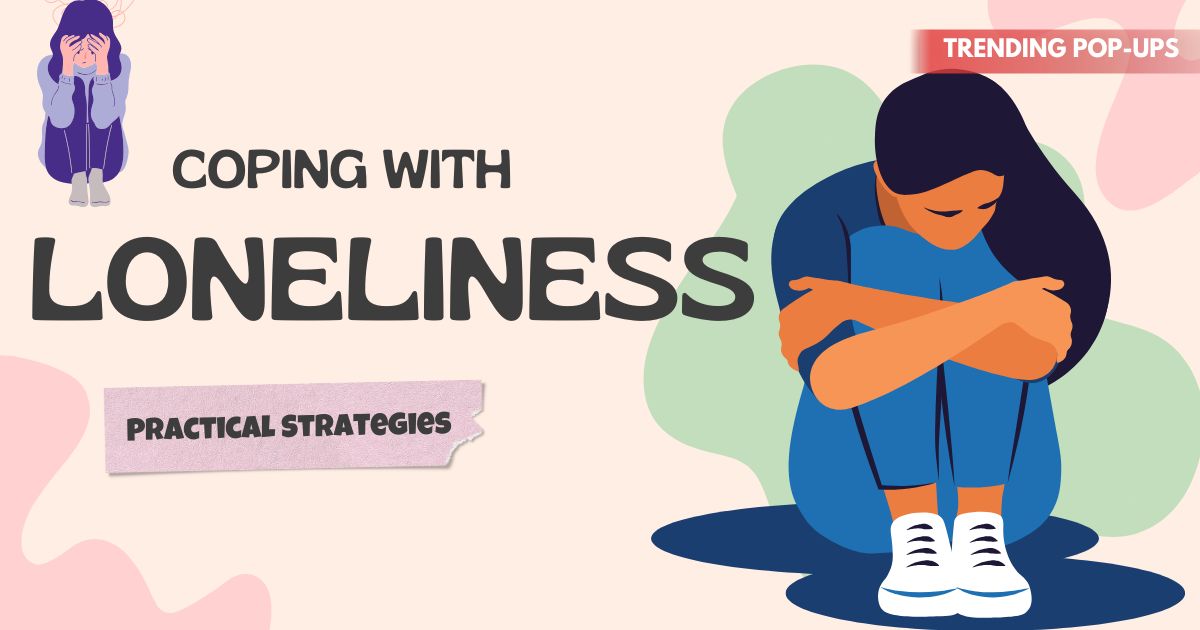Sleep and mental health are deeply interconnected. When the body does not get enough restorative sleep, it can significantly affect emotional well-being, increasing the risk of anxiety, stress, and mood disorders. Understanding the connection between sleep deprivation and anxiety is essential for improving both sleep quality and mental health.
This guide explores how lack of sleep impacts brain function, hormones, and emotional stability, while offering strategies to break the cycle of insomnia and anxiety.
How Sleep Affects Mental Health
Sleep is crucial for the brain to process emotions, consolidate memories, and regulate stress responses. During deep and REM (rapid eye movement) sleep stages, the brain restores neurotransmitters like serotonin and dopamine, which are vital for mood regulation.
Insufficient sleep disrupts these processes, leading to:
-
Impaired emotional regulation
-
Heightened stress response
-
Reduced cognitive performance
-
Increased irritability and mood swings
How Sleep Deprivation Leads to Anxiety
1. Hormonal Imbalance
Lack of sleep affects the hypothalamic-pituitary-adrenal (HPA) axis, triggering overproduction of stress hormones like cortisol and adrenaline. Elevated cortisol levels increase feelings of nervousness and restlessness, contributing to anxiety.
2. Brain Function Alteration
Sleep deprivation impacts the amygdala, the brain’s emotional center, making it more reactive to stress and negative stimuli. Simultaneously, the prefrontal cortex, responsible for rational thinking, becomes less effective, making it harder to manage anxious thoughts.
3. Neurotransmitter Disruption
Sleep loss reduces serotonin, GABA, and dopamine levels—chemicals that regulate mood and calm the nervous system. This imbalance heightens susceptibility to anxiety and panic disorders.
4. Increased Rumination
When sleep-deprived, people are more likely to dwell on negative thoughts and overthink situations, which intensifies anxiety.
The Vicious Cycle: Anxiety and Sleep Deprivation
Anxiety and sleep deprivation are closely linked in a cyclical pattern:
-
Anxiety makes it difficult to fall or stay asleep.
-
Lack of sleep heightens stress response and emotional reactivity.
-
Heightened anxiety further disrupts sleep, creating a feedback loop.
Breaking this cycle is crucial for long-term mental health.
Signs Your Anxiety Is Linked to Sleep Deprivation
-
Trouble falling asleep or staying asleep
-
Waking up frequently during the night
-
Feeling restless or irritable during the day
-
Racing thoughts before bedtime
-
Increased heart rate or sweating at night
-
Difficulty concentrating or making decisions
Recognizing these signs can help identify sleep issues as a root cause of anxiety.
Strategies to Improve Sleep and Reduce Anxiety
1. Maintain a Consistent Sleep Schedule
Go to bed and wake up at the same time every day, even on weekends. Consistency strengthens the body’s circadian rhythm, promoting better sleep quality.
2. Create a Relaxing Bedtime Routine
-
Dim lights 1–2 hours before sleep
-
Practice relaxation techniques such as deep breathing, meditation, or gentle stretching
-
Avoid electronics and stressful tasks before bedtime
3. Optimize Your Sleep Environment
-
Keep the bedroom cool, dark, and quiet
-
Invest in a comfortable mattress and pillows
-
Minimize noise with earplugs or white noise machines
4. Limit Stimulants and Alcohol
Caffeine, nicotine, and alcohol disrupt sleep cycles and reduce REM sleep. Avoid these substances at least 4–6 hours before bedtime.
5. Exercise Regularly
Moderate physical activity reduces stress and promotes deeper sleep. Avoid vigorous exercise immediately before bedtime, which may increase alertness.
6. Cognitive Behavioral Therapy for Insomnia (CBT-I)
CBT-I is an evidence-based approach that addresses negative thoughts and behaviors related to sleep, helping break the anxiety-sleep deprivation cycle.
7. Mindfulness and Relaxation Techniques
Mindfulness meditation, progressive muscle relaxation, and guided imagery can reduce nighttime anxiety and prepare the body for restorative sleep.
Conclusion
Sleep deprivation and anxiety are intricately linked, with each exacerbating the other. Chronic lack of sleep disrupts hormones, neurotransmitters, and brain function, heightening stress and emotional reactivity. By prioritizing consistent sleep, practicing relaxation techniques, optimizing the sleep environment, and addressing anxiety through therapy or mindfulness, individuals can break this cycle and restore mental and physical health. Prioritizing both sleep and mental wellness is essential for long-term resilience and well-being.
Also Read : Mindfulness and Meditation: A Beginner’s Toolkit
FAQs
Q1. Can a single night of poor sleep cause anxiety?
Yes, even one night of insufficient sleep can increase stress hormones and emotional reactivity, temporarily heightening anxiety.
Q2. How many hours of sleep are necessary to reduce anxiety?
Most adults need 7–9 hours of quality sleep per night for optimal mental and emotional well-being.
Q3. Can improving sleep alone reduce anxiety?
Improving sleep significantly helps, but combining it with stress management, therapy, and lifestyle changes yields the best results.
Q4. Are some people more prone to anxiety from sleep loss?
Yes, genetic predisposition, chronic stress, and underlying mental health conditions can make individuals more susceptible.
Q5. When should I seek professional help?
If sleep deprivation and anxiety persist for weeks, interfere with daily life, or lead to panic attacks, consulting a healthcare professional is recommended.



